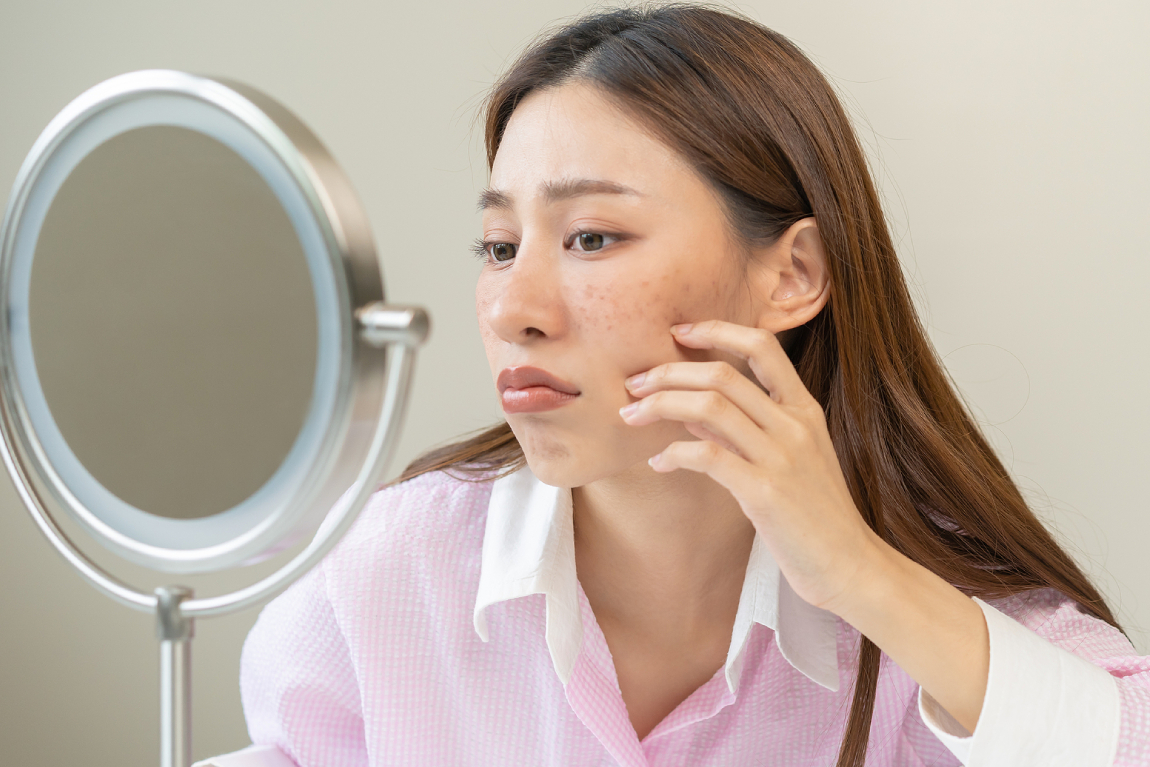
Dark spots, also known as hyperpigmentation, are one of the most common skin concerns that many people experience. Whether they are caused by acne scars, sun exposure, or hormonal changes, they can make your skin appear uneven, affecting your confidence. However, the good news is that you can reduce dark spots and achieve glowy Korean glass skin with the right skincare routine and treatments. In this article, we’ll explore effective ways to combat dark spots, along with some tips to help you achieve a radiant complexion.
Dark spots form when melanin, the pigment responsible for skin colour, is produced in excess in certain areas. The overproduction of melanin can be triggered by various factors, including:
While it’s essential to protect your skin from the above factors, reducing existing dark spots requires consistent effort and the right treatments.
1. Sun Protection Is a Must
The first and most important step in reducing dark spots is sun protection. UV rays can worsen pigmentation and make dark spots more noticeable. Always wear a broad-spectrum sunscreen with at least SPF 30 every day, even on cloudy days. Reapply sunscreen every two hours when spending extended time outdoors. You may also want to wear hats and sunglasses for added protection.
2. Use Brightening Ingredients
Certain skincare ingredients are known for their ability to lighten dark spots and brighten the skin. These include:
3. Consider Professional Treatments
While at-home products can help fade dark spots, professional treatments can speed up the process and provide more noticeable results. Professional facials are designed to improve skin texture, reduce pigmentation, and address acne scars. A trained aesthetician uses advanced techniques to exfoliate and rejuvenate the skin, helping to restore a smoother, more radiant complexion.
Another option to consider is a face whitening treatment in Singapore, which often involves advanced procedures such as chemical peels, laser therapies, or microdermabrasion. These treatments work by exfoliating the skin’s surface, removing dead skin cells, and stimulating new skin growth, leading to brighter, more even-toned skin.
4. Stay Consistent with Your Skincare Routine
Patience is key when it comes to treating dark spots. Consistency is crucial, as fading hyperpigmentation can take time. Stick to your skincare routine and incorporate products that target pigmentation, such as exfoliating acids (like AHAs or BHAs) and brightening serums. Make sure to hydrate your skin regularly to support its natural repair process.
5. Incorporate Gentle Exfoliation
Exfoliating your skin helps to remove dead skin cells that can trap melanin in the surface layers, making dark spots more prominent. Gentle exfoliation can accelerate the fading process by allowing brighter skin cells to surface. However, be careful not to over-exfoliate, as this can irritate your skin and worsen pigmentation. Use exfoliating products with AHAs or BHAs two to three times a week, depending on your skin type.
6. Hydration is Key
Keeping your skin hydrated is essential for healing and rejuvenating the skin. When your skin is well-moisturised, it is better able to regenerate and repair itself, which helps in reducing the appearance of dark spots. Use a moisturiser suitable for your skin type and ensure it contains ingredients like hyaluronic acid or ceramides for long-lasting hydration.
7. Consider Acne Facial Treatment
If your dark spots are a result of acne scars, an acne facial treatment might be beneficial. Acne facials typically involve deep cleansing, exfoliation, and specialised treatments aimed at reducing acne breakouts and preventing new ones. These facials can also address scarring and pigmentation, helping to even out your skin tone.
Reducing dark spots and achieving an even skin tone requires a combination of sun protection, targeted skincare, and professional treatments. By using brightening ingredients, staying consistent with your skincare routine, and seeking professional facials, you can gradually achieve a smoother, more radiant complexion.
At Adonis Skincare, we offer customised treatments designed to target dark spots and other skin concerns. Whether you are looking for a facial in Serangoon, Jurong East, Bedok, Ang Mo Kio, or Vivo City, our experts are here to help you achieve flawless skin.
Contact us today to learn more about how we can assist in your skin transformation.
Get first access to our latest products, promotion & events.